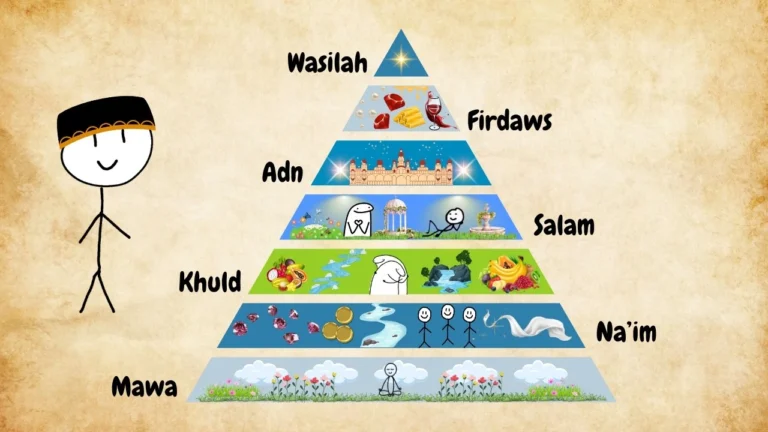Why Can’t Muslims Drink Alcohol or Eat Pork?

The question we’re going to address today is about alcohol and pork. Why does Islam prohibit these items?
So the Quran mentions four things that are prohibited for people to eat. This is mentioned in the second chapter of the Quran, the fifth chapter of the Quran, the sixth chapter of the Quran, it is repeated. And in the list we have the flesh of swine.
Echoes from the Bible
And it is interesting, by comparison, to notice that in the New Testament, it is mentioned in the Acts of the Apostles that when there was a dispute among the early preachers of Christianity as to what was to be done with Gentiles, the Council in Jerusalem ruled that it should be said to the Gentiles that they are to stay away from four things.
Interestingly enough, the flesh of swine is not mentioned there, but we know from elsewhere in the Bible that the flesh of swine was to be prohibited, and of course was declared prohibited in the books of Deuteronomy and Leviticus. And there even some passages in Isaiah reflect approvingly of those prohibitions.
Jewish and Early Christian Practices
The dietary laws were there in the Old Testament and also continue to be seen to be applicable in the New Testament, though the New Testament does not specifically label pork as a prohibited item, but in general the law was to be kept.
And of course, Jewish Christians had to continue abiding by the law. And Paul himself declared himself to be a Pharisee of Pharisees. And he was saying, with regards to the law, he’s blameless, which means that he himself continued to observe the law and he too must have refrained from eating pork, as would have the disciples of Jesus that came with him from Galilee, and they were of Jewish origin.
So they would’ve maintained the Jewish laws. And to this day there are Jewish Christians, and I would expect that many of them would retain their Jewish roots by observing, among other things, the dietary laws, which are there, prescribed in the Old Testament.
A Common Thread Between Faiths
And of course, Jews who are following the Tanach or the Hebrew scriptures, would maintain the same law along with Muslims by not eating pork.
The Possible Reasons Behind Pork Prohibition
But why was pork prohibited in the first place? It may be because pork comes with certain health risks. There’s some benefits, of course, in eating meat, and especially pork, but also a lot of unique harms that come with eating pork.
Now, in modern times, with modern farming processes and with proper refrigeration and cooking methods, especially at high heat, these harms are mitigated to a certain extent.
But still there are harms which are associated with this. And one can go to Healthline, for example, and find an article there regarding some of the harms from eating pork.
Conditions in Ancient Times
Now, at the time when it was prohibited, both in the Old Testament and then subsequently in the Quran, at that time, people did not have these facilities. And of course pigs were scavengers, so they would, you know, eat waste.
And by consuming such waste they might ingest, you know, substances which were harmful to humans when passed on through their meat.
Deeper Reflections
Also, there might be a psychological benefit attached to this, in that when people, you know, people say you are what you eat.
So perhaps if people thought of the thing that they’re eating as being a scavenger, being the thing that, you know, consumes all waste, then one might think of themselves too as being nourished by the same sort of waste products.
Read Also: How to Perform Ghusl (غُسْل) after Menstruation or Periods?
Modern-Day Allowances in Islam
But of course, modern farming and so on mitigates that to a certain extent. But I’m explaining why, historically, this might have been the reason why God has prohibited it in the first place.
Now one might ask, “Well, in our modern times, if we can mitigate the harms, then what’s wrong with eating pork?”
Well, for Muslims, there are so many other things that we can consume that are clearly permissible in the religion.
We’re not, like, stuck so that we have to be in a situation to say, “Well, wait a minute, we don’t have anything else to eat. Can we at least eat the pork?”
Exceptions in Emergency
In fact, in Islamic law, it is well known in principle that if people are forced to the point of starvation, usually it is said, then one can actually consume even the things which are generally thought to be haram.
In fact, even the Quran says, (recites in Arabic). Whoever is forced by circumstance, whoever is compelled by necessity, then there is no sin on that person, providing that the person does not return to it unnecessarily and does not, you know, desire to have it.
So you just use it as, per necessity, but you don’t overuse it, you don’t reuse it, and you don’t desire it.
Alcohol: Another Serious Concern
Now let’s come to alcohol consumption.
Alcohol consumption in our modern times has been met with varying studies. Some studies at one time had shown that if you consume some types of alcohol, like for example, red wine, in moderation, then this could actually have some health benefits.
Like you drink one glass per day or something like this.
The Latest Scientific Perspective
But more recent studies have shown that, in fact, any amount of alcohol consumed can have detrimental effects. And this is why recently Health Canada has ruled that, you know, rather than say that “This much is allowed,” and so on, or “This much is safe,” Health Canada is now saying, as I understand it, that no amount of alcohol is safe to be consumed, but the less you consume the better, and the more you consume, the worse it is for you.
Alcohol’s Wider Harms
So the bottom line is that it is better to stay away from alcohol. So much for the health issues, but there are other practical considerations. Using alcohol can have many disadvantages for people in particular and for societies in general.
The person who drinks may think, “Okay, I’m just drinking a little,” but they may soon get addicted and they may not know when to stop. And so they may continue consuming, consuming. This causes harm to the individual.
Effects on Health and Society
In terms of health it can lead to certain cancers. It can lead to many problems, health issues and diseases. If a woman is pregnant, drinking alcohol can be detrimental to her and also to her unborn baby.
Babies are sometimes born with fetal alcohol syndrome. And if people drink sometimes it has detrimental societal effects. Harms are caused through accidents. And there are instances of domestic abuse that are clearly linked to alcohol consumption.
A Thankful Approach
Oh, the list of harms goes on and on. And for this reason, we thank God that he has given us this regulation in the Quran that prepares Muslims to be teetotalers.
So that it’s off limits for us, we’re not gonna touch it, and therefore, you know, we don’t have this problem of not knowing when to stop. We just stop right at the very beginning, we don’t even start.
Clear Instruction in the Quran
Now, Sura 5:90, it says that of these items, the drinking, gambling, and so on, these are the handiworks of Satan. So we are to avoid this altogether so that we may be successful. And this is what Muslims try to do.
It’s Not Just Islam
Now, one might look at it and say, “Man, Islam is so harsh about things like this, can’t I enjoy myself?”
Well, it’s not only Islam. In fact, it is probably interesting for some to know that there are, in some other religious traditions as well, some distancing from alcohol.
Other Faith Traditions
Buddhism in particular has five precepts, and four of those are known from the Old Testament. But then the fifth precept, surprisingly, is to stay away from alcohol, which ranks right up there with the Biblical Ten Commandments, in Buddhism.
In Hinduism there is also a sense, especially by those who are traditional Hindus, that alcohol is bad for you.
Among Jews there is, of course, the (speaks in Hebrew), the Passover meal, which includes using wine. But many Jews may feel today that they could actually substitute grape juice for the wine.
Among Christians, there is the communion or fellowship, or the Eucharist, which is observed. One of the items is a little thimble full of wine, or grape juice in some circles. And the Bible prohibits drunkenness.
Some Christian groups are known for their abstinence from alcohol — Baptists, Methodists, Seventh-Day Adventists, and the Church of Jesus Christ of Latter Day Saints.
A Universal Wisdom
So Muslims are not alone in this. But one does not have to be a person of faith to recognize that there are great harms from the consumption of alcohol.
A Better Path
People may drink alcohol because they feel that it gives them a sense of calm or maybe helps them to forget their worries. But Muslims can find such comfort in reading the Quran, in praying before God, and meditating.
So it’s better therefore to avoid all of the harms and to please God, following God’s commandments, both in terms of abstinence from pork and abstinence from alcohol.
Intellect is a Gift
Now, speaking of the human mind, alcohol is called (speaks in Arabic) in Arabic. And (speaks in Arabic) is a word that’s derived from the same root from which the woman’s head cover, (speaks in Arabic), is derived.
And it is thought that alcohol clouds or covers the intellect, and the intellect for a Muslim is one of the greatest gifts of God. So it is thought that alcohol is prohibited because it clouds the human judgment.
Final Thoughts
So you can see the spirit behind it is not to deprive human beings of enjoyment, but rather to preserve the intellect so that we could have enjoyment by using the intellect. Not only would we walk straight and drive straight, but we could enjoy the fruits of an active intellect that is unclouded.
A judgment that is sane and that is rational.
That’s all for today. I’m your brother in faith, Shabir Ally, signing off from the Muslim Media Hub.
Join me again tomorrow for another big question within the series of 30 questions about faith and rationality. The question tomorrow that we’ll be addressing is, “Why does Islam seem to have so many rules?”
So join me again for that. Peace be with you, Assalamualaikum.





